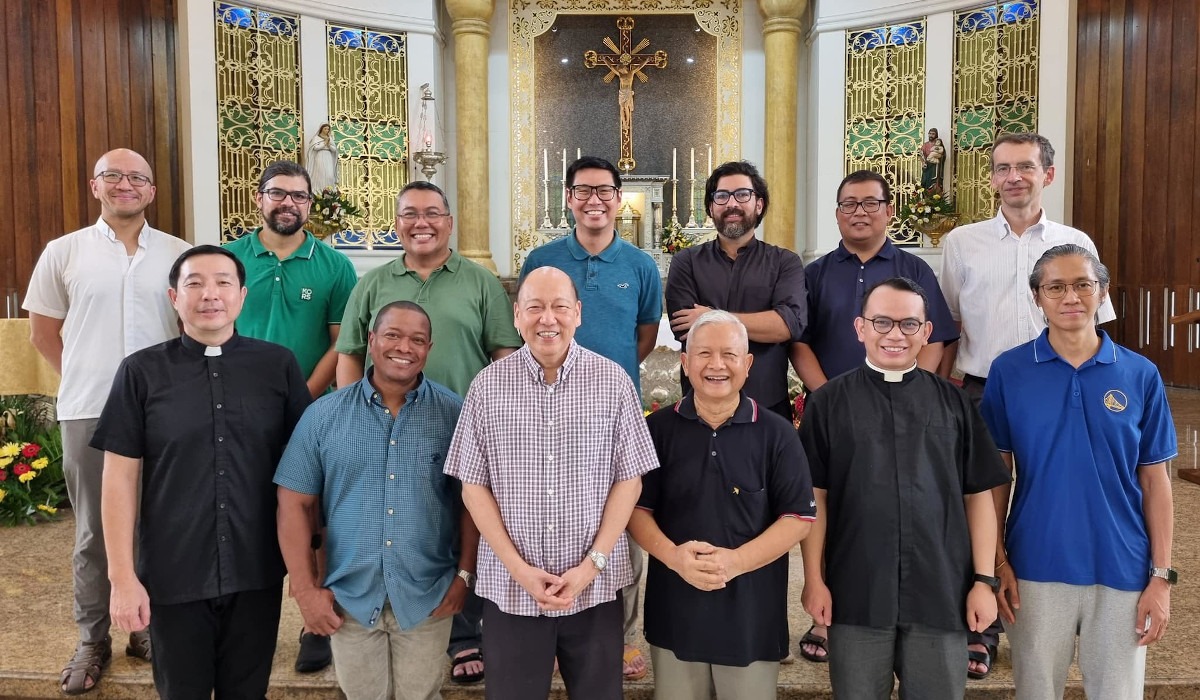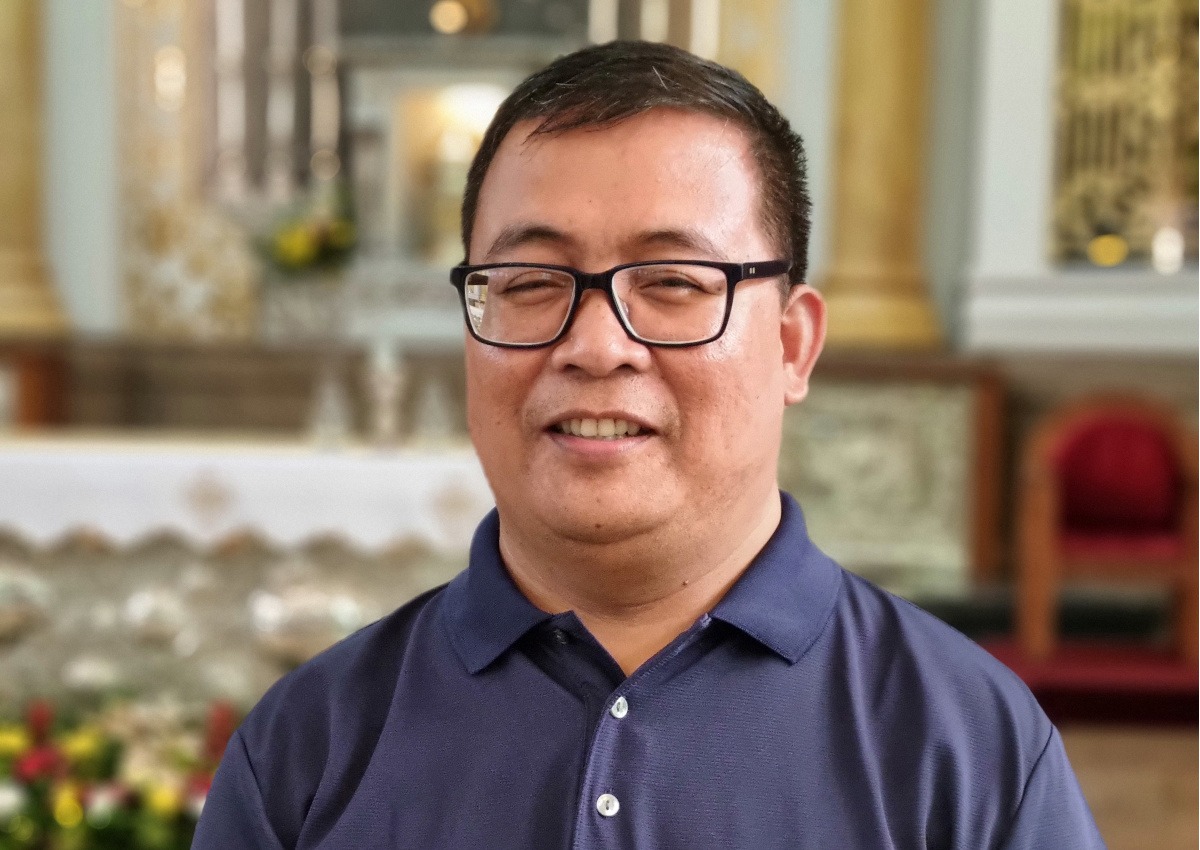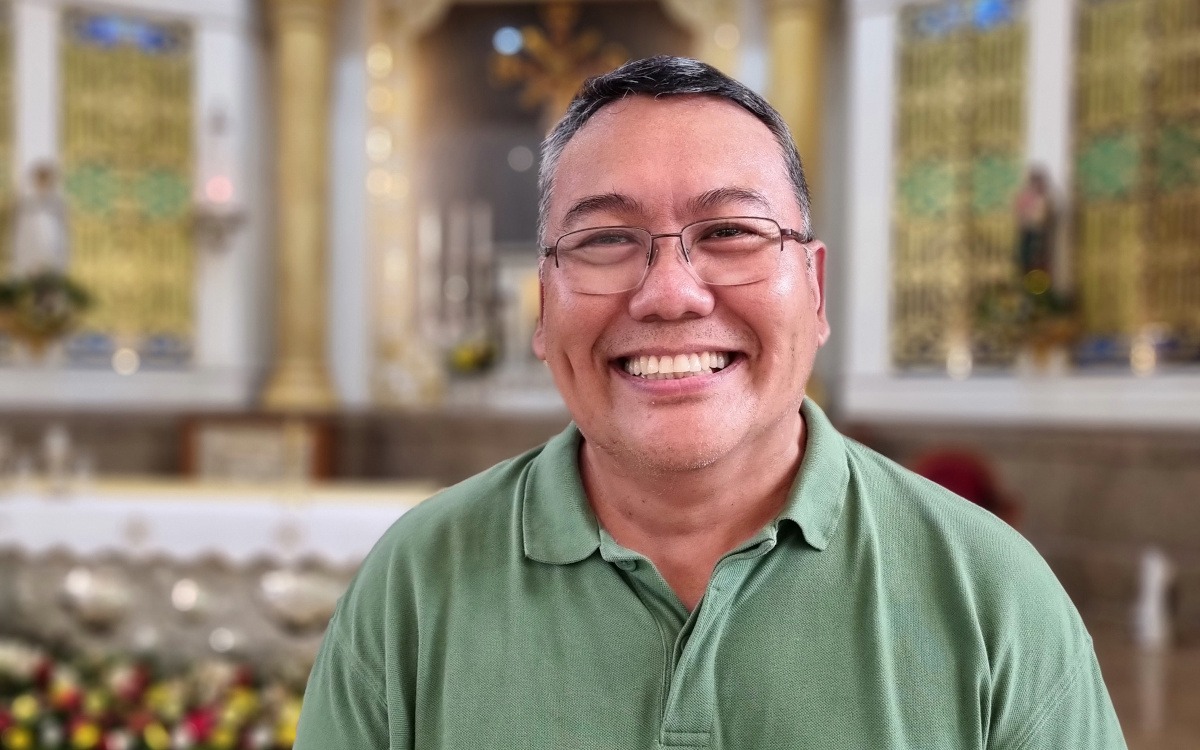 The Jesuit Conference of Asia Pacific (JCAP) Tertianship programme in Manila is a transformative time for Jesuits seeking deeper spiritual training. This year, 11 Jesuits from different parts of the world participated in the programme, deepening their journey of self-discovery and discernment within the rich tapestry of Ignatian spirituality. Two of them, Fr Roberto M Boholst SJ and Fr Frank Savadera SJ both from the Philippines, share their most significant takeaways from their Tertianship experience and impart some practical advice for those practising discernment.
The Jesuit Conference of Asia Pacific (JCAP) Tertianship programme in Manila is a transformative time for Jesuits seeking deeper spiritual training. This year, 11 Jesuits from different parts of the world participated in the programme, deepening their journey of self-discovery and discernment within the rich tapestry of Ignatian spirituality. Two of them, Fr Roberto M Boholst SJ and Fr Frank Savadera SJ both from the Philippines, share their most significant takeaways from their Tertianship experience and impart some practical advice for those practising discernment.
Fr Roberto M Boholst SJ
 I was a missionary in East Timor for 10 years before returning to Manila in 2020 to pursue master’s studies in education at the Ateneo de Manila University and to help with formation at the Loyola House of Studies. I decided to join the JCAP Tertianship programme because I was always out of the country, and I wanted to experience my priesthood in the Philippine setting.
I was a missionary in East Timor for 10 years before returning to Manila in 2020 to pursue master’s studies in education at the Ateneo de Manila University and to help with formation at the Loyola House of Studies. I decided to join the JCAP Tertianship programme because I was always out of the country, and I wanted to experience my priesthood in the Philippine setting.
The Tertianship gave me time and space to look back and examine more deeply my life and vocation as a Jesuit. It has allowed me to name and understand my experiences according to the Ignatian way of looking at life and all that it offers. I am fortunate with my batch of Tertians because we easily got along and thus I felt so safe to share my thoughts, feelings, and reflections about my life and the experiments we underwent.
I was able to focus on developing a greater appreciation for who I am and the gifts God has given me. At the same time, I spent time facing my limitations and frailties, recognising that all these work together in shaping how I answer the call of God as a Jesuit.
I thought that going through the 30-day Long Retreat the second time around would be easy, only to realise that even if the matters were the same, I had more experiences and more data to consider. I felt that, indeed, God cannot be outdone with his generosity and surprises. I relished the opportunities to visit places, meet new people, and gain new experiences in an unfamiliar apostolic set-up, where I simply participated in the work and did not have to worry about giving direction or making crucial decisions.
For those seeking discernment, openness is very crucial in considering options and possibilities that one may face. It is very important to listen to the inner stirrings in our hearts and to critically see the events in our lives. We must clarify the roots of our tendencies and preferences because we are usually influenced by so many factors operating in and around us. In the end, we must ask whether the option or decision we are drawn to make is good for us and for others as well. There is no clear-cut way or sure formula for making decisions. At some point, we have to take risks and trust that God has a bigger and better plan for us, even if we fail at times.
Fr Frank Savadera SJ
 I come from Manila and Cavite. I’ve been a Jesuit for 26 years and a priest for 15. Prior to Tertianship, I was a principal at Xavier University-Ateneo de Cagayan Grade School in Cagayan de Oro and completed doctoral studies in Organizational Development at Seattle University, WA USA. I was pleased to have finally been invited to join the JCAP Tertianship (it is the Jesuit Superior who appoints) after several postponements because of the pandemic and mission assignments. I am also grateful for the opportunity to do Tertianship locally in Manila after being away for some time.
I come from Manila and Cavite. I’ve been a Jesuit for 26 years and a priest for 15. Prior to Tertianship, I was a principal at Xavier University-Ateneo de Cagayan Grade School in Cagayan de Oro and completed doctoral studies in Organizational Development at Seattle University, WA USA. I was pleased to have finally been invited to join the JCAP Tertianship (it is the Jesuit Superior who appoints) after several postponements because of the pandemic and mission assignments. I am also grateful for the opportunity to do Tertianship locally in Manila after being away for some time.
A striking image for me during my 30-day retreat was how God views the world, which is different from how we see and experience it in our own time. It was a privilege to see the world as God sees it. He has a time-lapsed perspective on the world. He looks at it in terms of its continuing evolution, the changes in seasons, the rise and fall of civilizations, our current circumstances, and towards a beautiful end that only he, for now, knows. From this prayer, I realised that God’s perspective is eternal, and though we may not completely fathom the elements of such a perspective, we are always invited to participate in it, to have a feel and sense of it through our deep connection with Him. Thus, I see my vocation as an opportunity to unite myself with such an eternal plan despite the ups and downs of life, to journey towards where God brings all of us, towards greater light and peace, and to develop a greater reverence for how events unfold in our lives.
Even at the beginning, the tertian instructors emphasised how the programme is a time to pray, reflect, recreate, relax, rejoice, and celebrate. This was challenging at first since most of us were coming from busy ministry schedules. But even this process of “slowing down” has a purpose. I truly appreciate the experiments and how the JCAP Tertianship programme gave me the flexibility to “customise” my experiment as I saw fit.
While praying on Saint Ignatius’ Principle and Foundation and, as well, the Gospel stories of Jesus reaching out to the outcast and healing the sick during the Sabbath, I affirmed how the love of God cannot be contained. God breaks barriers and removes obstacles that hinder others from seeing and experiencing His love. Similarly, we are called to continuously examine the tragic limits of our horizons, break out of conventions, think outside the box, and remove obstacles that prevent us from expressing who we are and what we are truly made for—to love. We were made to love, revere God, and allow his life to flow into us without limit.
Discernment is always made in the context of prayer. Thus, it is important to develop a consistent prayer life. Discernment is an opportunity to align our plans with those of God’s. We need to constantly hear what He has to say to us in terms of life direction. It will also be best to look for a discernment spiritual director, one who can mirror to us the patterns of God’s movement in our lives.

